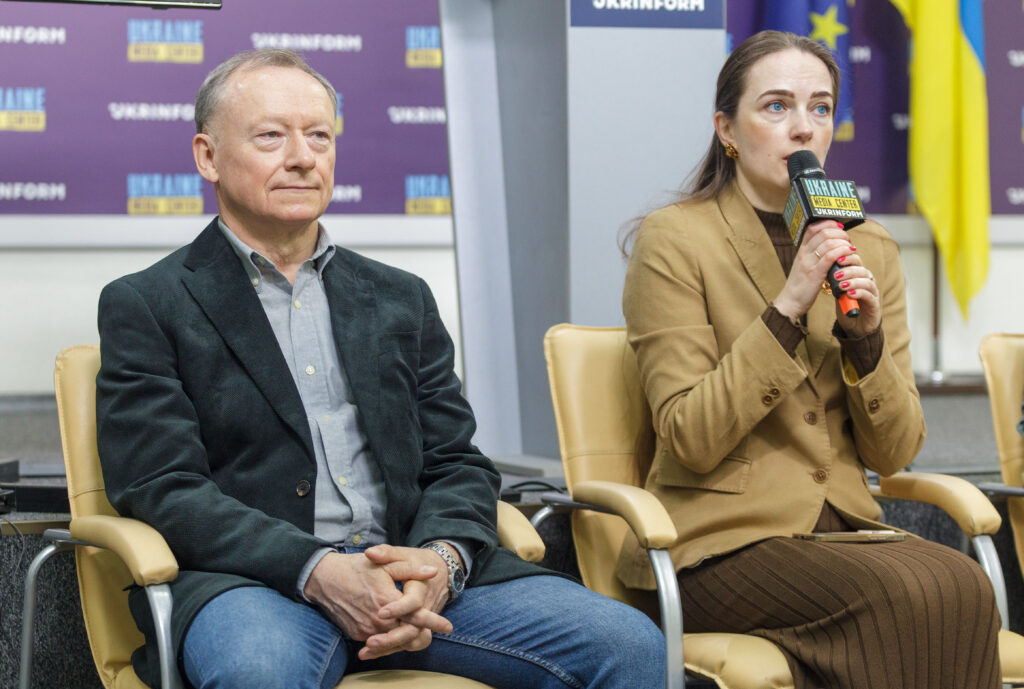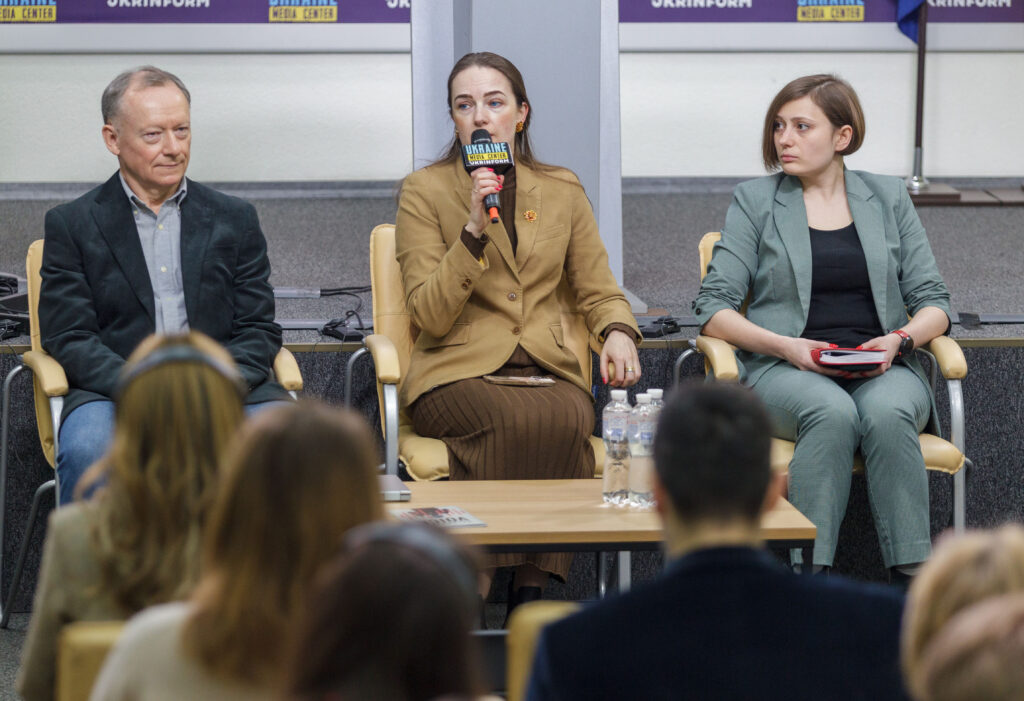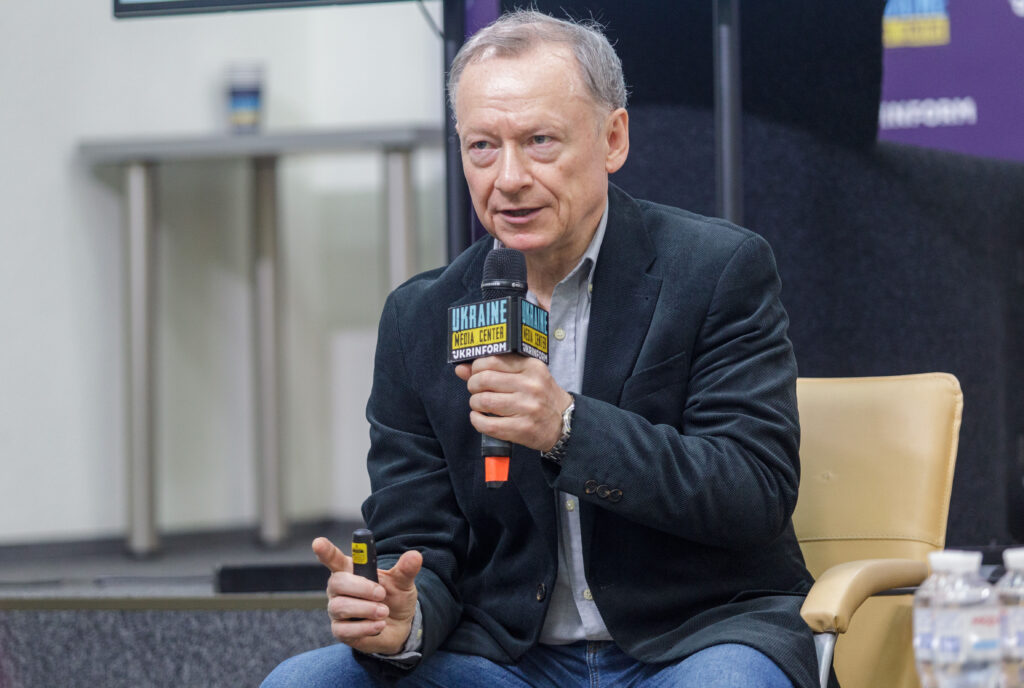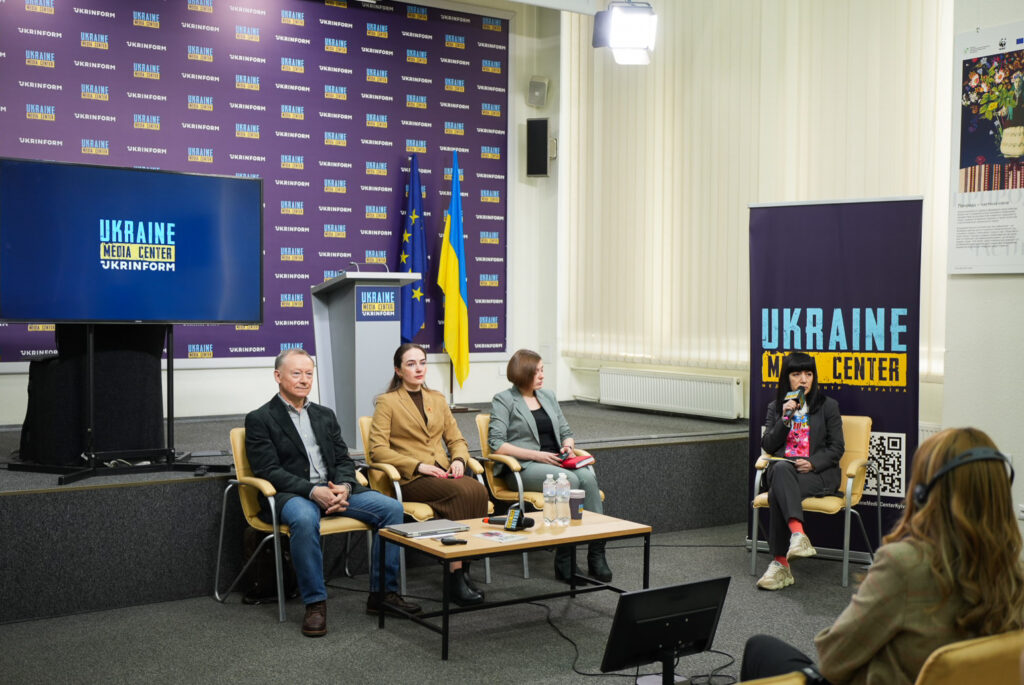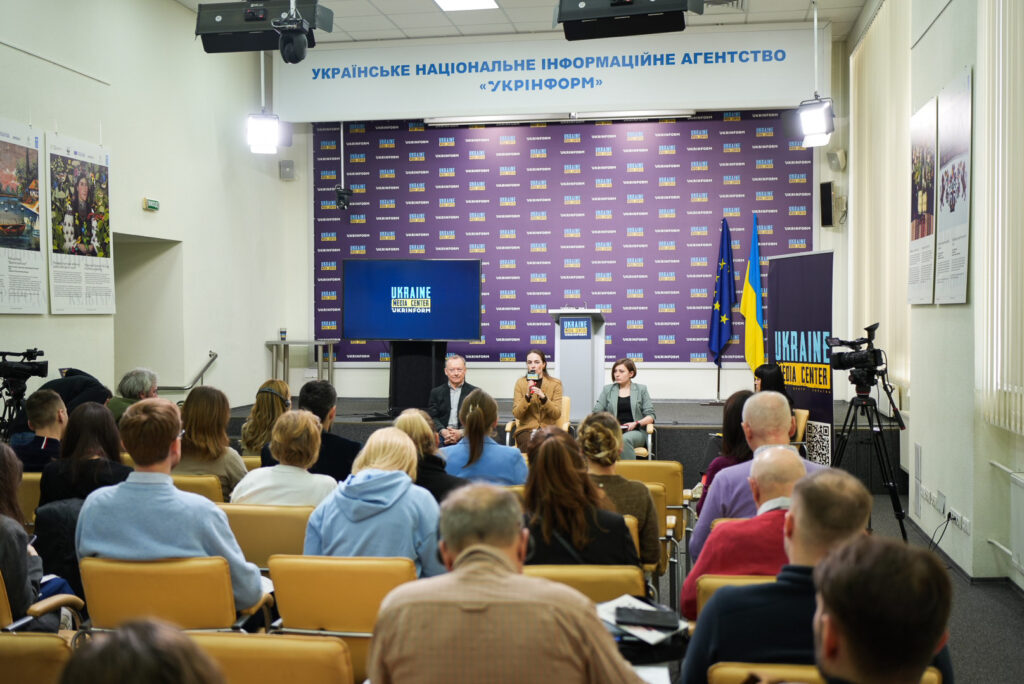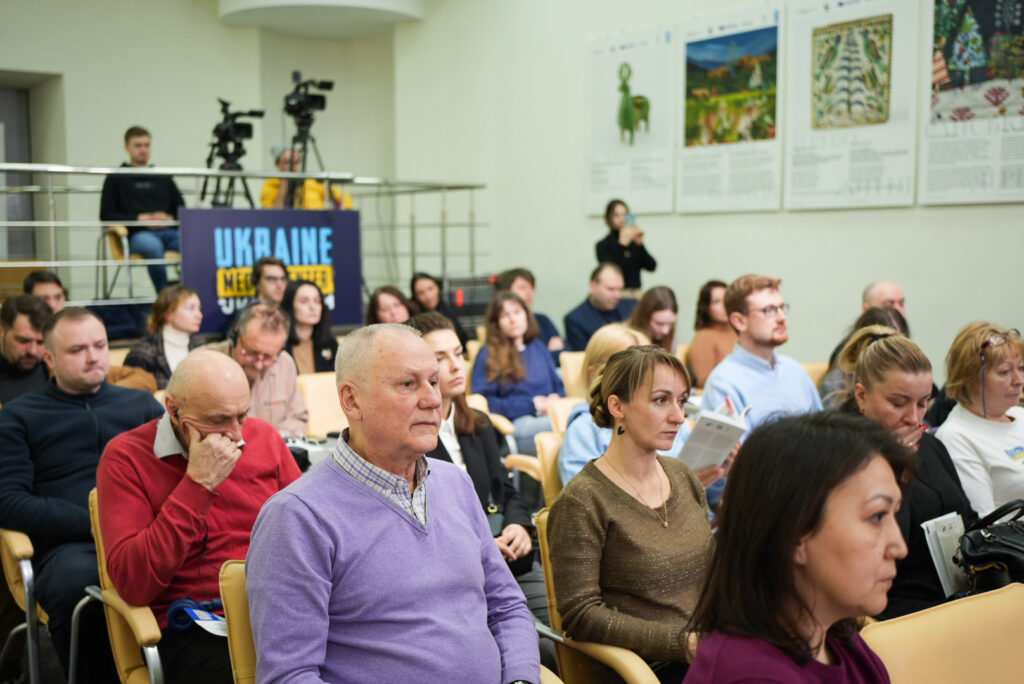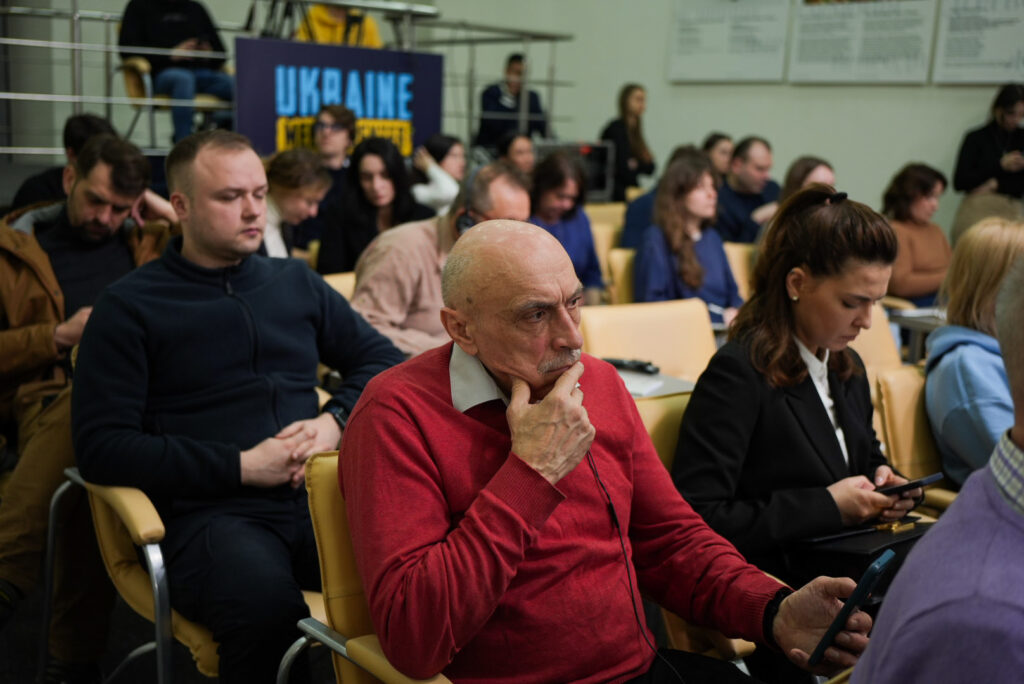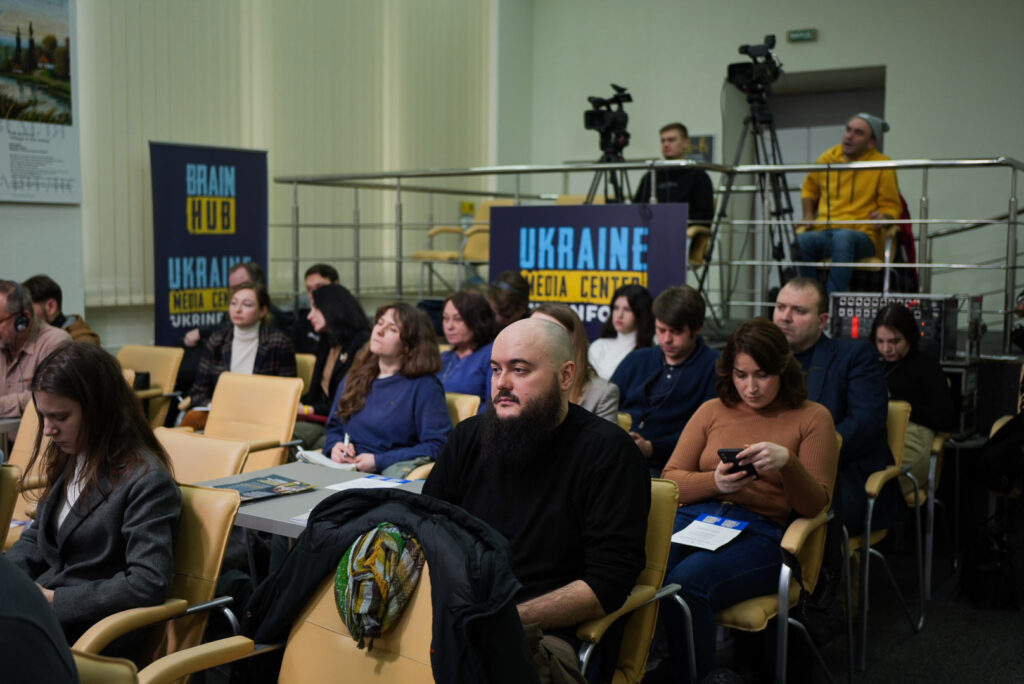“Otherwise, we need 100 years to release them all. Such speed does not suit us”. The Center for Civil Liberties presented its Strategy for the Release of Civilians
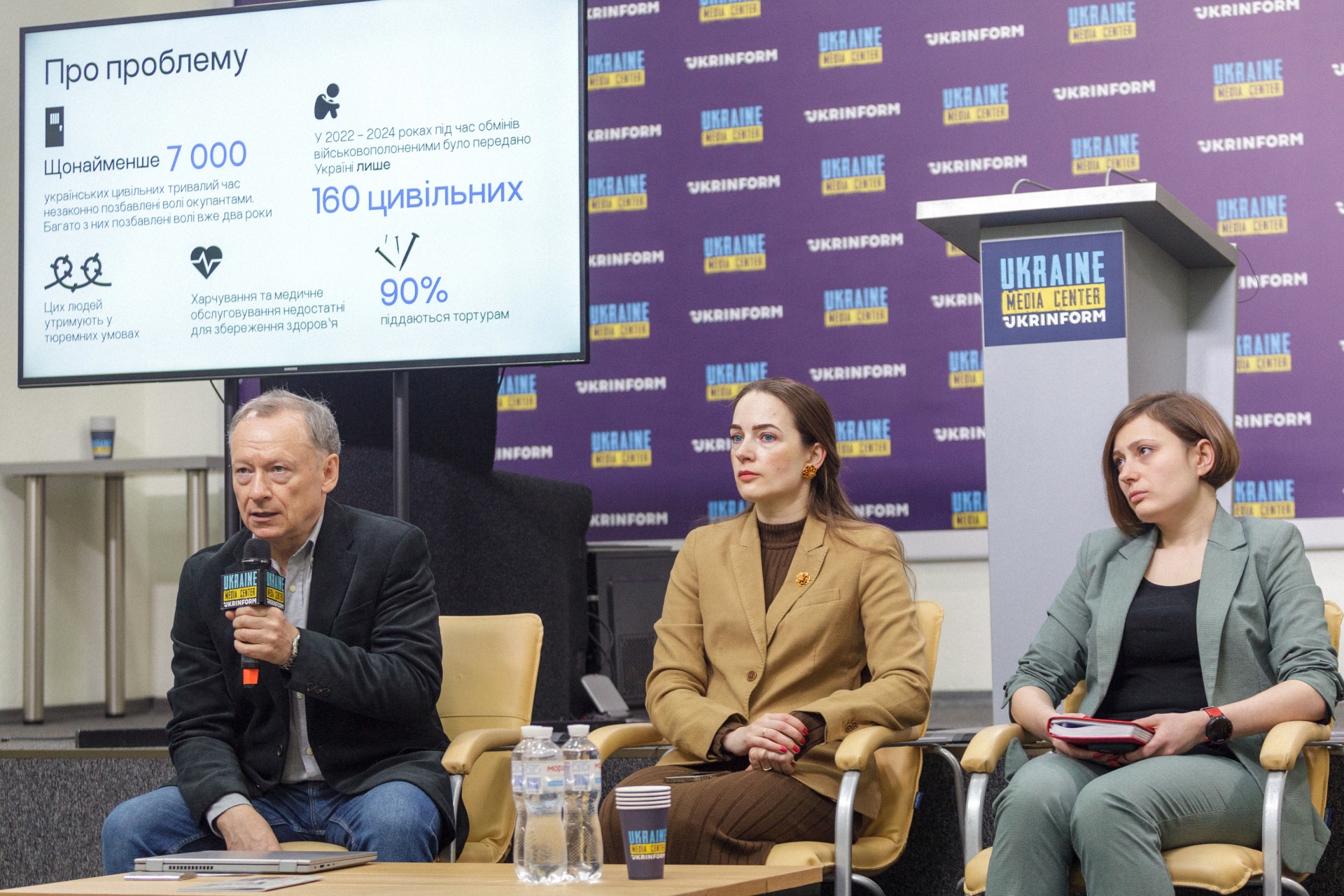
On 14 March, the Center for Civil Liberties presented the Strategy for the release of illegally detained civilians and find missing persons as a result of Russian aggression. Oleksandra Matviichuk, Head of the Center for Civil Liberties, said that over 7,000 civilians were unlawfully detained in the occupied territories and in the territory of the Russian Federation. Only 160 civilians have been so far released as part of exchanges (since the beginning of the large-scale invasion and until January 2024). The experts of the Center for Civil Liberties and the Coordination Headquarters for the Treatment of Prisoners of War are the authors of the Strategy.
Along with Oleksandra, other speakers at the presentation were Mykhailo Savva, Doctor of Political Science and Member of the Expert Board of the Center for Civil Liberties and Viktoriia Petruk, representative of the Coordination Headquarters for the Treatment of Prisoners of War. The event was also attended by representatives of the Office of the Prosecutor General, the Ministry of Foreign Affairs of Ukraine, the UN Monitoring Mission in Ukraine, the International Committee of the Red Cross, embassies of foreign countries and relatives of missing persons.
The experts pointed out that many civilians were ill-treated and tortured, and their places of detention were kept secret. They are held in prison settings, and they suffer from oxygen starvation, low immunity and concomitant diseases such as tuberculosis. Their mental health suffers from the lack of sensory experiences. The criminal cases against them are totally falsified, the charges are brought under rather dubious and sometimes even ridiculous articles and there are no court decisions whatsoever. There is little information about the unlawfully detained individuals, and they are released too slowly. That is why a strategy was needed for their unconditional release without exchanges.
“We first faced the issue of civilians who were unlawfully imprisoned in the course of the Russian aggression in February 2014. In late February 2014, the Center for Civil Liberties was the first human rights organization to deploy the first mobile team to Crimea, and afterwards, they started operating in Luhansk and Donetsk regions. It was back then that we witnessed the illegal practices of abductions, torture, sexual violence and killings of civilians in the occupied territories. It was back then that we faced the fact that the legal tools were not effective or did not work at all, and something more should have been added to them to change the situation strategically.
So, during the #SaveOlegSentsov campaign, we were the first Ukrainians to try the practice of simultaneous protests in more than 35 countries. It was then that for the first time, because of this pressure, the resolutions we needed appeared in the European Parliament and the Parliamentary Assembly of the Council of Europe.
Earlier, Russia at least attempted to make it look like a civilized country like it complied with the provisions of international law and had at least some respect for the decisions made by international organizations. Now, wherever we appeal, Russia does not respect them.
We, the human rights defenders, should add something that I call “+ I” to the law, as the law does not function alone now. We will definitely restart it in the future, but we should add some action to yield the results right now. This action can be of a sanction-related, economic or diplomatic nature. This “plus something” is the exact foundation underlying the Strategy’s logic. It has a comprehensive nature and is linked to tools that are not only legal”, Oleksandra Matviichuk explained.
“We offer a system of actions capable of bringing about the release of a large number of people. Otherwise, we will need 100 years to release them all. Such speed does not suit us. The Russian regime is perfectly aware of the fact that it violates the requirements of international humanitarian law. For the Russian Federation, war crimes are just a method of waging war. That’s why it’s pointless to just claim that they are violating international humanitarian law. We need a system of correlated actions to put pressure on Russia.
Our Strategy is designed to achieve two goals. The first is to help the people survive to see freedom The second is to release them all. We will demand their release without any conditions and changes”, Mykhailo Savva pointed out.
In its Strategy, the Centre for Civil Liberties suggests that the priority is to develop a state register of civilians being held in places of forced detention. After that, a dialogue should be launched with countries with a high level of respect for human rights to introduce a package of targeted international sanctions against the officials of the Russian Federation who are guilty of crimes. Also, in particular, communication should be maintained with the International Committee of the Red Cross, which has a special authority to protect civilian victims of international conflicts but fails to fully exercise it.
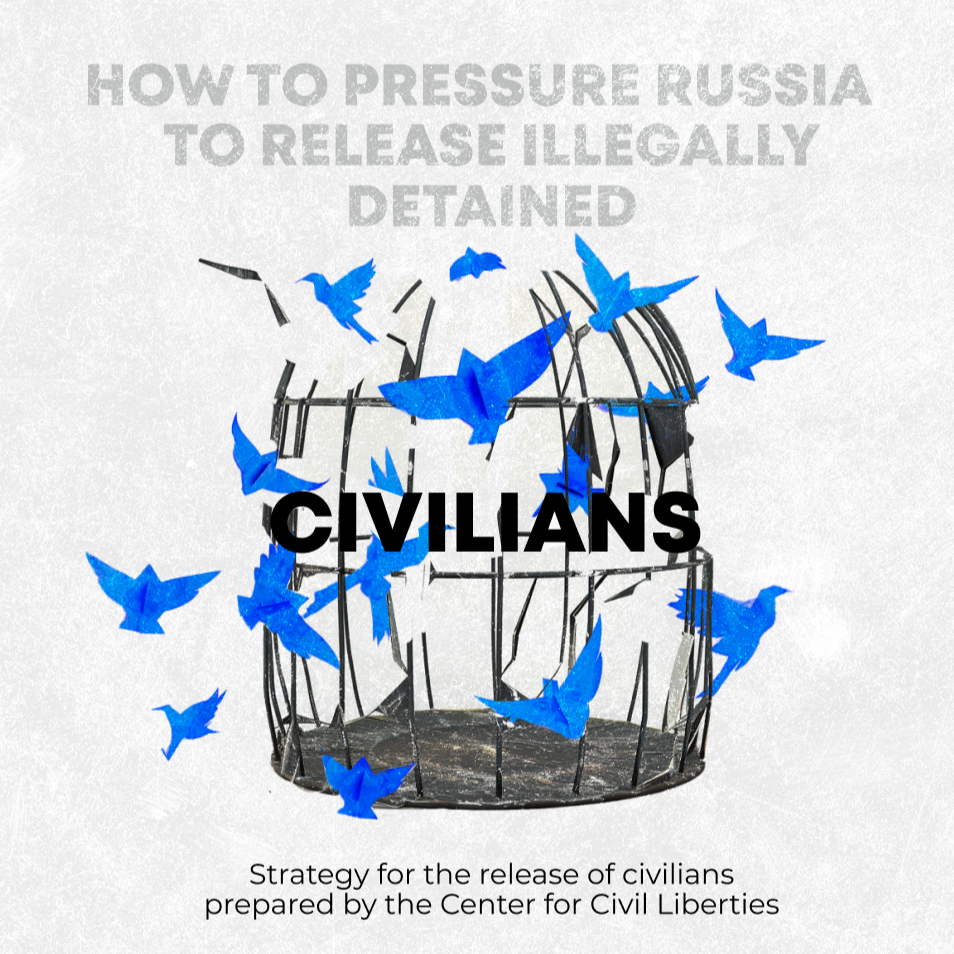
A Strategy for the Release of Civilians
Proposals of the Center for Civil Liberties Concerning Methods of Exerting Pressure on the Russian Federation for the Release of Ukrainian Civilians Unlawfully Detained by the Russian Side
in the Context of the Armed Conflict.
Also, the Center for Civil Liberties suggests that the Ukrainian authorities appeal to the Russian Federation, which is a party to the UN Convention against Torture and Other Cruel, Inhuman or Degrading Treatment or Punishment, with a statement regarding violations of this Convention by Russia. Should Russia refuse to accept arbitration, a claim should be filed against it with the International Court of Justice. However, should the civilians be released, Ukraine may refuse to advance this procedure. The requirements also include identifying the senior officials of the places of forced detention where the civilians are kept and instituting their criminal prosecution in Ukraine and other countries. Conditions should be established to enable the International Criminal Court to issue warrants for the unlawful imprisonment of civilians. An international awareness-raising campaign is also a must, as most of our Western allies simply have no idea of how many civilians are detained.
“Our experts participated in the drafting, content completion and review of the Strategy. We support the need to take these steps. In the issue of the return of either prisoners of war or civilians, it is impossible to guess which factor will be the key. Therefore, we need to use all the mechanisms that are possible. It is impossible to say that the authorities have not dealt with the issue of returning civilians illegally detained by the Russian Federation,” added Victoria Petruk, a representative of the Coordination Headquarters for the Treatment of Prisoners of War (KSHPPV).
Photos: Media Center Ukraine, Polina Moroziuk.
Center for Civil Liberties operates with the support of the European Union.

